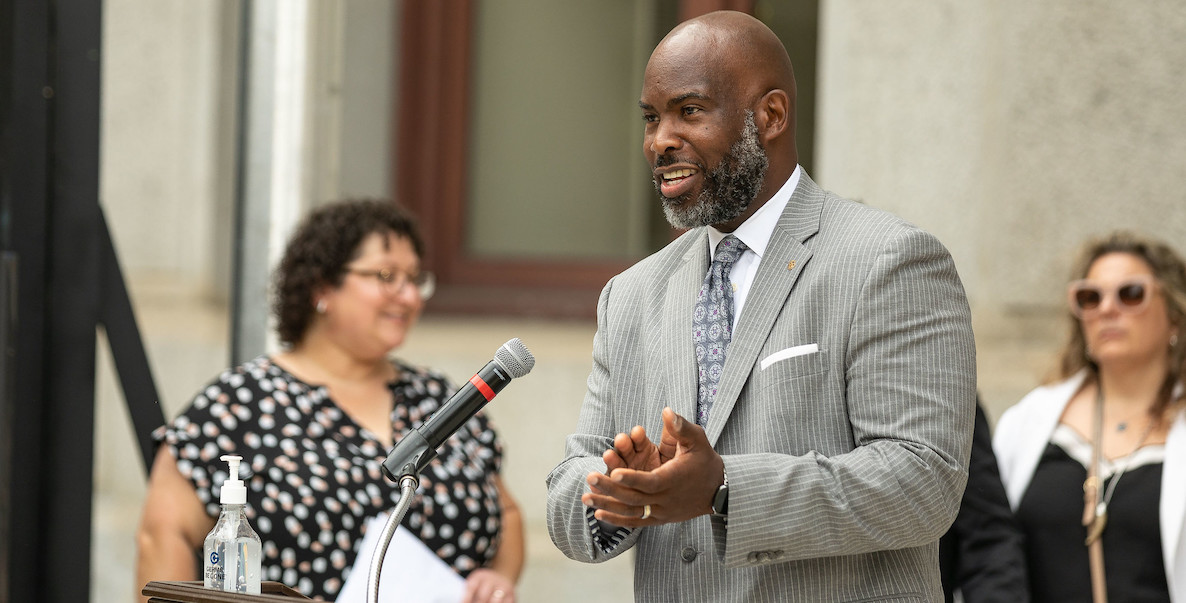Philadelphia is coming up on a local election cycle in 2023 that for various reasons is expected to be very competitive. Several members of City Council are expected to resign to run in the open mayoral race, leaving several open Council seats that will likely attract some larger candidate fields.
Our first-past-the-post voting system isn’t the best voting system available in cases where there are large candidate fields and only one possible winner, since somebody can win with just a plurality of the electorate, who the majority of voters don’t support.
There’s a good argument that ranked-choice voting systems do a better job at this by ensuring the winner is somebody who has majority support, and they do this by making voters’ second-, third-, and fourth-choice rankings count for something.
RELATED: How ranked-choice voting could have stopped Donald Trump
By letting people rank their candidate preferences in order, the voting system can take into account people’s second- and third-choice candidate preferences, and reward the candidates who are most acceptable to a majority of voters. This also helps to remove the “spoiler effect” problem under first-past-the-post elections in cases where there are multiple candidates with the same constituency.
There is also some evidence that ranked-choice voting leads to more positive and constructive campaigning, as the candidates have some better incentives to be well-liked by their competitors’ fans, and be the number two or three candidate on a lot of other ballots.
In cities and states with ranked-choice voting, it’s common to see candidates who are running for the same seat cross-endorse one another’s campaigns. In the most recent New York City election—the first one to use the ranked-choice system voters approved—mayoral candidate Andrew Yang endorsed fellow candidate Kathryn Garcia’s campaign, asking his supporters to rank Garcia No. 2 on their ballots (she didn’t endorse him back.)
There’s no prohibition on voters choosing only one candidate like they do now, but it was notable in New York City that voters overwhelmingly used the new ranking system—86 percent of voters overall, ranking on average about three candidates. That’s after the measure was approved by almost 74 percent of voters in a ballot referendum, so it’s evidently been very popular.
In Philadelphia, state Senator Tony Williams had been the only elected official to date to comment on this or to suggest bringing ranked-choice here, so it was interesting to see Councilmember Derek Green starting a local push this week, introducing a resolution to hold hearings on the implications of a ranked-choice voting system in Philadelphia. The resolution was co-sponsored by Councilmembers Cindy Bass, Jamie Gauthier, Isaiah Thomas, and Allan Domb.
City Council can’t change this by themselves without state authorizing legislation, but Senator Williams has prepared legislation (SB 59) which would authorize such a system in Philadelphia, and it’s possible it could pick up steam with more vocal support from local elected officials.
Anyone who wants to see this happen should make sure to call or email their councilmembers and ask them to co-sponsor Councilmember Green’s ranked-choice voting resolution, and then let their state senators know you want them to support SB 59 this fall.

Jon Geeting is the director of engagement at Philadelphia 3.0, a political action committee that supports efforts to reform and modernize City Hall. This is part of a series of articles running on both The Citizen and 3.0’s blog.
![]()
RELATED
Header photo by Jared Piper / Philadelphia City Council



